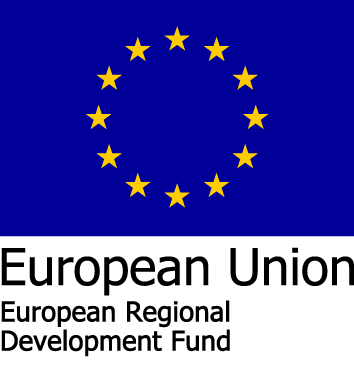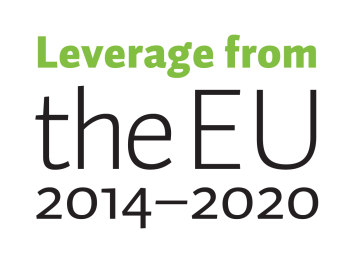Green 3D-Printing for Dental Appliances Project


![]()
Planned completion time: January 1st 2022 – August 31st 2023
EU and State funding granted: 183 024
Planned public funding (total): 228 780
Project contact person: Lassila Lippo, Head of Turku Clinical Biomaterials Centre-TCBC, liplas@utu.fi
Co-organisers: Turun ammattikorkeakoulu oy, 2528160-3
Responsible authority: Helsinki-Uusimaa Regional Council
Complete application: https://www.eura2014.fi/rrtiepa/projekti.php?projektikoodi=A78579
Dentistry is part of health technology, which has been defined as one of the three priorities for smart digitalization in Southwest Finland. This project aims to create cooperation between companies and research institutes in these fields and thus to create the conditions for new innovations and their commercialization. The use of 3D printing and recycled materials in dentistry (Green 3D-printing for Dental Appliances) is part of this priority from the perspective of oral rehabilitation.
The project is based on development needs of companies in the field and offers opportunities for new innovations and business by developing additional manufacturing in the field of dentistry in accordance with the principles of sustainable development. The project focuses on adding recycled materials to existing dental materials, material efficiency and the development of new “green” materials, e.g. for printing dental models. The materials to be developed are dental prosthetics and orthodontics and other extra materials needed during the manufacturing process, such as models. Alongside this, new addition 3D manufacturing techniques for the production of models, removable prostheses as well as for indications of fixed prosthetics, such as fixed partial dentures, crowns and bridges. An extensive list of indications increases the effectiveness of the project.
Dentistry is living in a revolution where the importance of 3D printing is growing rapidly. In fact, dental technology, along with the jewelry industry, has already overtaken traditional industries in the utilizing of 3D technologies. This same phenomenon occurred as milling techniques took over dental technology decades ago. Companies operating in the field have a need to develop their manufacturing know-how, materials and equipment. In summary, the needs of dental companies in the region of Southwest Finland are needs more expertise and facilities 3D production and developing completely new innovative products. On the other hand, for companies manufacturing materials and equipment, there is a need to develop new 3D printing equipment and “green” materials such as the use of wood fibers in the printing of dental models.
The development of digitalization also creates threats for local entrepreneurs, as digital work can be transferred as easily to the other side of the world as well as locally within the city. Therefore, the versatile expertise and continuous development of digital knowledge technologies is a key issue in the successful business in local dental entrepreneurs. Digital manufacturing process of dental devices reduces physical logistics and increases ecological sustainability when the environmental load is reduced, e.g. in traffic. Digital manufacturing decreases dusty handcraft steps, as these steps can be done using a 3D printing, thus wellbeing is increased. The know-how gained in the project will be shared among the participants in the region, taking into account the needs of small and large companies and the cooperation of research institutes with companies, and improving local competitiveness in the global 3D market.
Main objectives:
- After this project, materials to make various dental appliances like dentures, could be partly recycled as well as improve material efficiency, both in the manufacture of materials and in the use of materials.
- Development of “Green” materials will help recycling and accelerate/improve the product development of companies for the development of 3D printable materials for dentistry.
- New manufacturing technologies will diversify the uses of materials and lead to the development of new types of patient prosthetic products in dentistry.
- The importance of additional manufacturing / 3D printing is growing in dental laboratories and companies manufacturing 3D printing equipment and materials in Southwest Finland and is increasing companies’ productivity, innovation capacity and short-term turnover.
- Cooperation between dental laboratories, companies manufacturing 3D printing equipment and materials, and training organizations will be intensified and the level of expertise in 3D printing will increase in Southwest Finland.
- The capacity of 3D printing equipment in companies’ R&D activities and production equipment increases with the cooperation of educational institutions, eg through subcontracting.
- The expertise acquired from the project will be integrated to a printing center, Multicomponent Materials Centre of Expertise for Additive Manufacturing (MMAM) that is being constructed into Turku University of Applied Sciences (https://mmam.turkuamk.fi/) and to TCBC – Turku Clinical Biomaterials Center (https://biomaterials.utu.fi/tcbc/)
The project will be implemented in cooperation between the participating organizations through four measures:
- Development and testing of 3D printing materials for removable prostheses manufacturing in a dental laboratory.
- Improve the utilization and recycling of dental materials and move to greener materials.
- Improving the efficiency of the manufacturing process of removable dentures by developing new manufacturing techniques and equipment
- Planning and feedback sessions with companies.
The 3D printing tests carried out on the project with different equipment and materials produce information that the companies involved in the project utilize in product development, design and production. These include, for example, practical knowledge of the 3D printability and manufacturing processes of various materials required in dental applications from the perspective of material efficiency and ecology.
Versatile mechanical testing of materials and practical experience lead to the development of design and automation of 3D printing equipment and 3D printing processes. The development of 3D printing in a multidisciplinary manner will make it possible to increase cooperation both between companies that manufacture 3D equipment and between companies that use them. The results will affect the growth of production and R&D activities related to 3D printing in companies and, in the longer term, the development of new products and services in oral health care, the growth of turnover and the increase of jobs.
Project has received funding from the European Regional Development Fund (ERDF) as part of the Union’s response to the COVID-19 pandemic. The aim of the funding is to increase innovation and productivity thus leading to a green, digital and resilient recovery of the economy in the European Union.
More information on European Regional Development Fund (ERDF): https://ec.europa.eu/regional_policy/en/funding/erdf